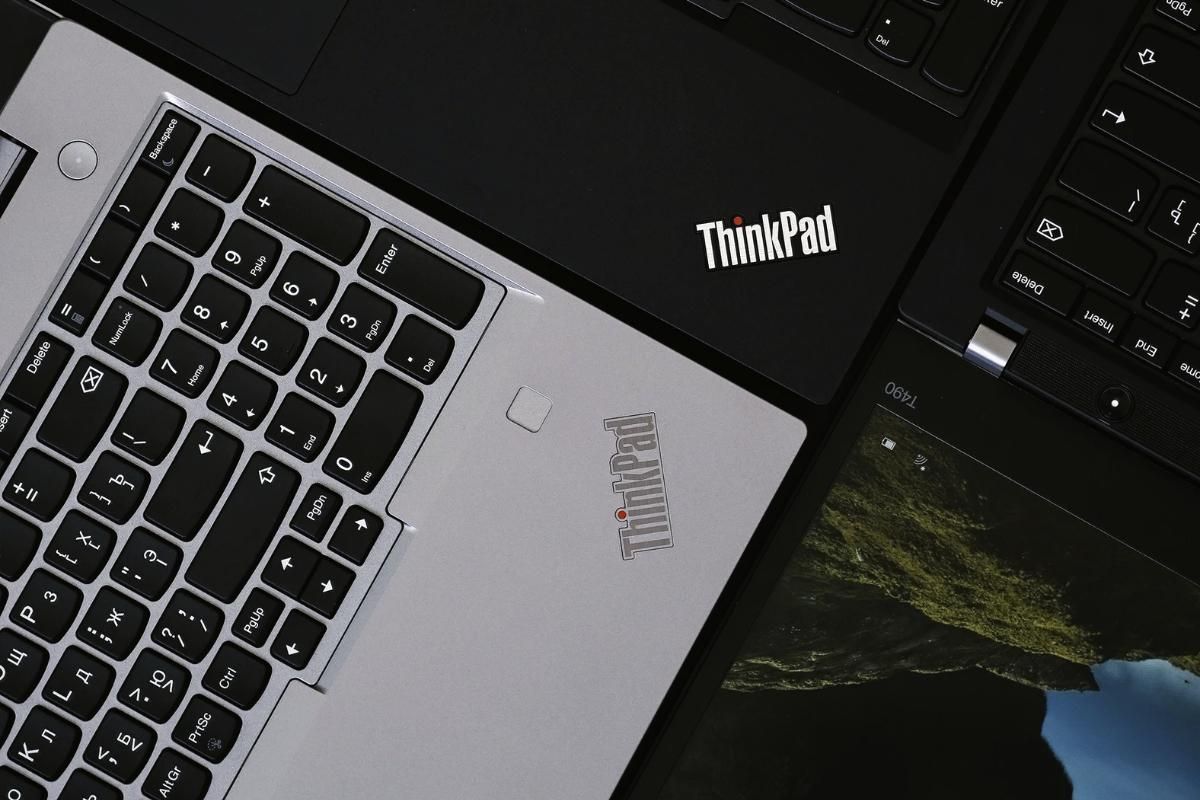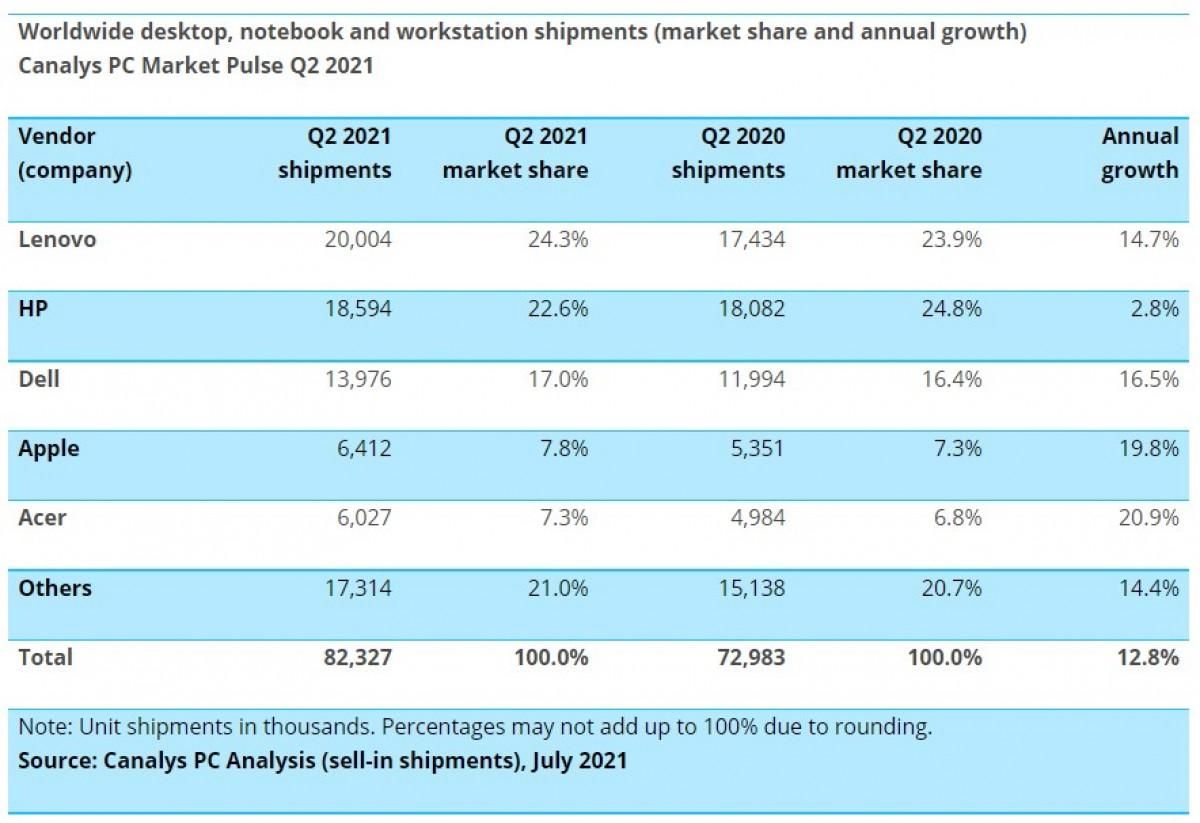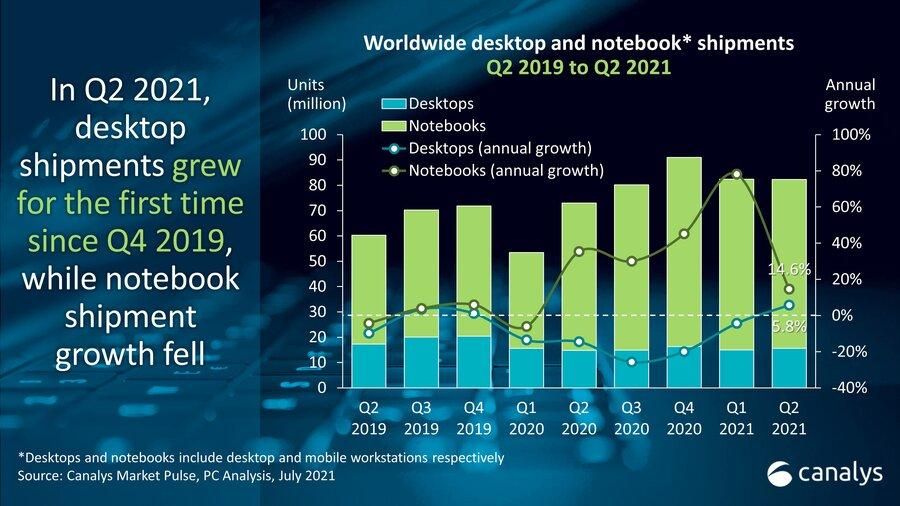The PC market has been on a sharp decline for many years, but it was able to rise again recently. A new research report was posted today that analyzed the global PC sales for Q2 2021. The report includes a number of different devices and mentions the biggest PC manufacturers.
The report was posted by Canalysis, and they report that shipments for desktops and networks, including workstations, rose 13% year on year to hit 82.3 million units. The notebook and mobile workstation shipment grew 15%, reaching 66.7 million units, while desktop and workstation shipments were up 6% at 15.6 million units.
“Demand remains high, particularly due to a strong commercial segment, as the pandemic-driven urgency for consumers to get their hands on PCs is starting to wane. Component supply issues remain a problem for the industry, but the extent of order shortfalls and backlogs is reducing.”
Worldwide desktop, notebook and workstation shipments – Canalysis
Lenovo shipped more than 20 million units in this quarter, compared to 17.4 million last year, this resulted in the company growing YoY 14.7%. HP managed to secure the second position with more than 18.5 million shipments and grew 2.8% YoY. Dell at the third place shipped 13.9 million units and 17% market share, the company managed 16.5% YoY. Apple at fourth place had a market share of 7.8% and shipped more than 6.4 million units. Acer at fifth shipped 6 million units and had a market share of 7.3%.
Source: Canalysis
The commercial demand from recovering businesses was the main reason for the market to grow. The consumer sales are projected to slow down in the future, and the commercial sales are expected to go up. The component supply issue remains a main concern for the entire industry, but the extent of order shortfalls and backlogs is slowly reducing.
The new Windows 11 update may help PC manufacturers advertise and sell more computers, since the recent TPM requirement may force some users to upgrade their hardware, or altogether just upgrade to a brand new computer, although hardware requirements can and will likely change before release.



